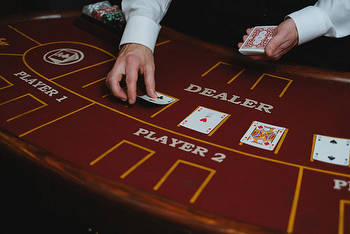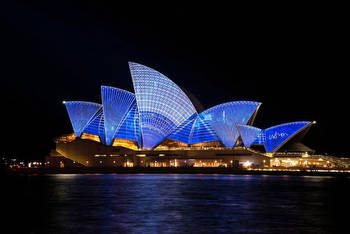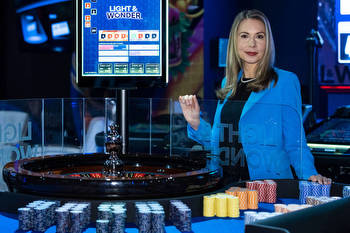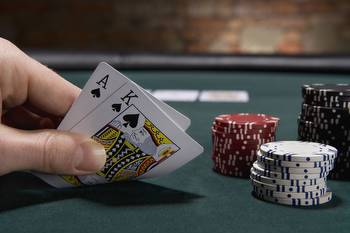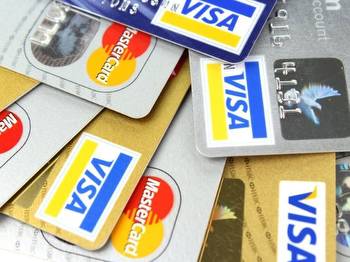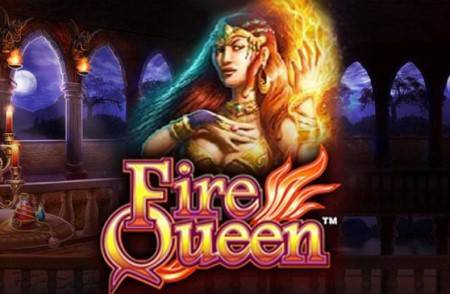Roll Of The Dice; Recession Proof Gambling
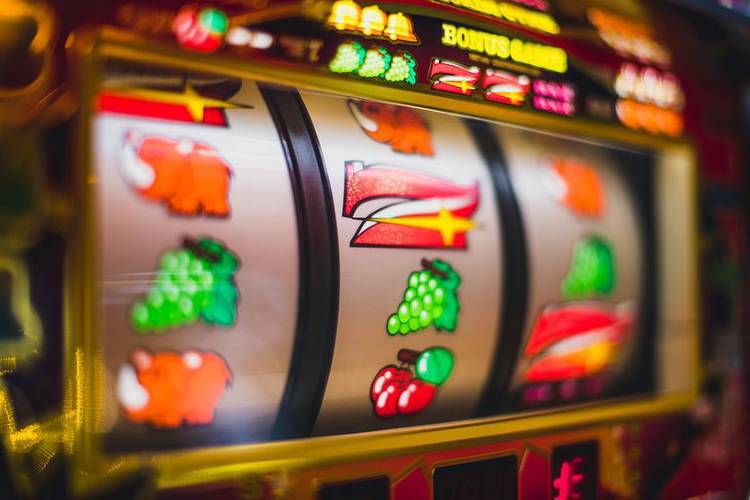
This story features TABCORP HOLDINGS LIMITED, and other companies. For more info SHARE ANALYSIS: TAH
Gambling is regarded as recession proof. The ASX offers numerous offers to give portfolios a winning edge.
-Research suggests households don't consider buying lottery tickets a luxury or even discretionary-UBS survey shows 31% of Australians buy a lottery ticket at least once a week-Gambling, in all its forms, is big business -Multiple ASX-listed companies offer exposure
By Nikhil Gangaram
With the dreaded ‘R-word’ (recession) caked across headlines, many investors could, understandably, be getting cold feet and apprehensive on where to find value in the share market.
As a result, most prudent investors pour into defensive sectors such as consumer staples, healthcare and utilities. However, for those with a little bit of imagination, there are other avenues for growth despite these bread and butter recessionary stalwarts.
Since time immemorial, the gambling industry has long been regarded as a recession proof sector and the Australian equities market provides plenty of opportunities to give portfolios a winning edge.
Time immemorial
Given the recent tightening in current economic conditions, many consumers may be thinking twice about ordering their next smashed avo on toast. The same is not by default true for consumers and their weekly lottery ticket.
A study from the University of Sydney found that in times of economic recession, gambling usually stays firm as consumers opt for a potential way out during hard economic times. Despite being a discretionary purchase, lotteries have exhibited annuity-like characteristics, with the key drivers of growth being stable factors such as population growth.
This theory has been reinforced by a survey conducted by UBS. The survey found 31% of Australians buy a lottery ticket at least once a week, with 40% of the cohort admitting they would continue to do so if prices rose.
There are several theorisations which aim to explain this phenomenon in consumer behaviour that gives the lottery and gambling its enduring appeal. Namely, most households don't perceive their weekly lotto pickings as a form of gambling and the outlay seems relatively modest compared to the potential reward.
In Australia gambling is big business. Despite our meagre population size, Forbes estimates Australians spend around USD$25bn on gambling annually, compared to USD$53bn in the United States. According to a report by IBISWorld, the Australian gambling industry generated $25.6bn in revenue in 2019-2020, with the largest segment of gaming machines accounting for over 40% of total revenue.
The industry itself has grown significantly in recent years, driven by factors such as rising consumer demand, technological advancements, and liberalisation of gambling regulations. In addition to traditional gaming machines (pokies), growth in the sector has also been fuelled by the increasing popularity of online gambling, the expansion of the sports betting market and the introduction of new technologies, such as mobile apps and virtual reality.
For those inclined on ‘taking a punt’, the ASX offers a smorgasbord of options to add sector exposure to the investment portfolio.
For the punters
Tabcorp Holdings ((TAH)) is Australia’s leading pure-play wagering and racing media operation.
In addition to retail outlets, the company offers digital platforms for its betting services. Earlier this year, Tabcrop revealed an 11% increase in its half-year report and made its intentions clear to further reduce costs and improve its digital market share. The company’s ‘TAB25’ drive included the ambitious target of increasing its digital market share from 25% to 30% by 2025, whilst also slashing capex by -$600-620m.
Having split from Tabcorp last May, The Lottery Corporation ((TLC)) is the company behind one of the best-performing lottery businesses in the world. With brands such as ‘The Lott’ and ‘Keno’ under its banner, the company operates in every state and territory in Australia except Western Australia.
The Lottery Corp recently reported ongoing strength from its core lotteries business and a better than expected boost from its keno business. The company reported a year-on-year underlying earnings increase of 16%, with the lottery division, which accounts for 85% of group earnings, lifting earnings 12% year-on-year to $350m. Earnings margins lifted by 90 basis points to 19.7%. Following its maiden dividend and policy to pay out 80-100% of net profits, the Lottery Corp has already become a favourite among investors.
Jumbo Interactive ((JIN)) specialises in online lottery sales through its fully digital platform. This company allows customers to purchase tickets for major Australian lotteries and has a growing international presence in the United States, Mexico and Germany.
Pointsbet Holdings ((PBH)) is the only pure-play sports bookie listed on the ASX. Despite announcing a 52% increase in revenue for FY22, the company incurred huge losses in its attempt to penetrate the lucrative US betting market. That ambition has changed since two foreign buyers approached the board with the intent of purchasing those loss-making US operations.
As things stand, it looks like Fanatics Betting and Gaming might hold the upper hand in this two-horse contest. Once a deal is concluded, Pointsbet management will have a pile of cash to throw at shareholders and invest in the remaining operations in Canada and Australia.
Cut from the same cloth is BetMakers Technology Group ((BET)) which offers punters access to the global sports betting industry. Contrary to some other bookmakers, BetMakers has an impressive international presence with licences to operate in multiple jurisdictions including Australia, the United States, the United Kingdom and South Africa.
In terms of electronic gaming machine makers, the ASX has two notable candidates in big brother Aristocrat Leisure ((ALL)) and little brother Ainsworth Game Technology ((AGI)).
Both companies manufacture and supply the electronic gaming machines (pokies) you find in pubs, clubs and casinos. In addition to these traditional machines, both companies have also started to foray into mobile gambling applications and online real money games (RMG).
Most recently, Aristocrat completed a $1.5bn takeover of Nasdaq-listed NeoGames to help bolster its product portfolio. With a total addressable market estimated to be worth $121bn in 2022, the takeover increases Aristocrat's presence in the RMG sector that allows punters to bet on casino games, online lotteries, sports and card games for hard currency.
On a slightly different note, investors might see value in entertainment companies owning casino operations to bolster their broader business activities. The most prominent names locally include Crown Resorts, no longer listed, and Star Entertainment Group ((SGR)). Both scandal-riddled operators have had a tough time in recent years, receiving bad press and the ire from governments and sector regulators, which is also reflected in Star's share price performance.
Both Australian companies operate traditional and digital gaming businesses to supplement their other entertainment offerings which include hotels, restaurants and bars. SkyCityEntertainment Group ((SKC)), which mostly operates in New Zealand with one casino in Adelaide, has equally found its share price under pressure.
AUSTRAC announced civil penalty proceedings in the Federal Court against SkyCity Adelaide in December last year for alleged serious and systemic non-compliance with Australia’s anti-money laundering and counter-terrorism financing laws, which means the issues that have plagued the sector in Australia in years past genuinely involved the whole of the sector in the broadest sense possible.
While there's always the risk authorities in New Zealand might start their own follow-up investigations, to date any reputational damage to Sky City operations has been of far lesser magnitude than for the Australian peers.
Bet with your head
Although there are many factors that make the gambling industry a sticky part of Australian culture, there are several shortcomings.
Although the sector has experienced significant growth in recent years, the long-term sustainability of this growth will depend on factors such as changing consumer preferences, regulatory developments, and the social and economic impacts of gambling.
The gambling industry in Australia is regulated at both the federal and state/territory levels. The federal government regulates certain aspects of the industry, such as online gambling, while each state and territory is responsible for regulating land-based gambling within its jurisdiction.
Find out why FNArena subscribers like the service so much: "Your Feedback (Thank You)" – Warning this story contains unashamedly positive feedback on the service provided.
FNArena is proud about its track record and past achievements: Ten Years On









